
Special Report by Nazima Raghubir
A dark cloud looming over the Barima River gives residents of Imbotero a sliver of hope that relief to their water woes is on the horizon.
Last Saturday, Simon Lakhan spent four hours in his farm tending to crops while also clearing some additional land for farming. But Lakhan, who is the Toshao of the village of Imboetro, is worried about the prolonged dry weather and the unavailability of potable water for his village.
Imbotero sits on Guyana’s border with Venezuela along the Barima River in Region One. Already, the Barima River and the Imbotero Creek have been invaded with salt water from the Atlantic Ocean, which limits the use of the river water for everyday activities for the three hundred people in the village.
“Most people in this community get this water from the line creek,” Lakhan said pointing across the Barima River to a small watery opening between the Imbotero Police Station operated by the Guyana Police Force and the base for the Venezuelan Coast Guard. “In that creek going way, far up, people going into that creek head, they got to go into the creek head, dig a pool fuh get lil fresh water, drinking water, Lakhan explained, “it not to healthy but still people use it, because that is all we geh”.
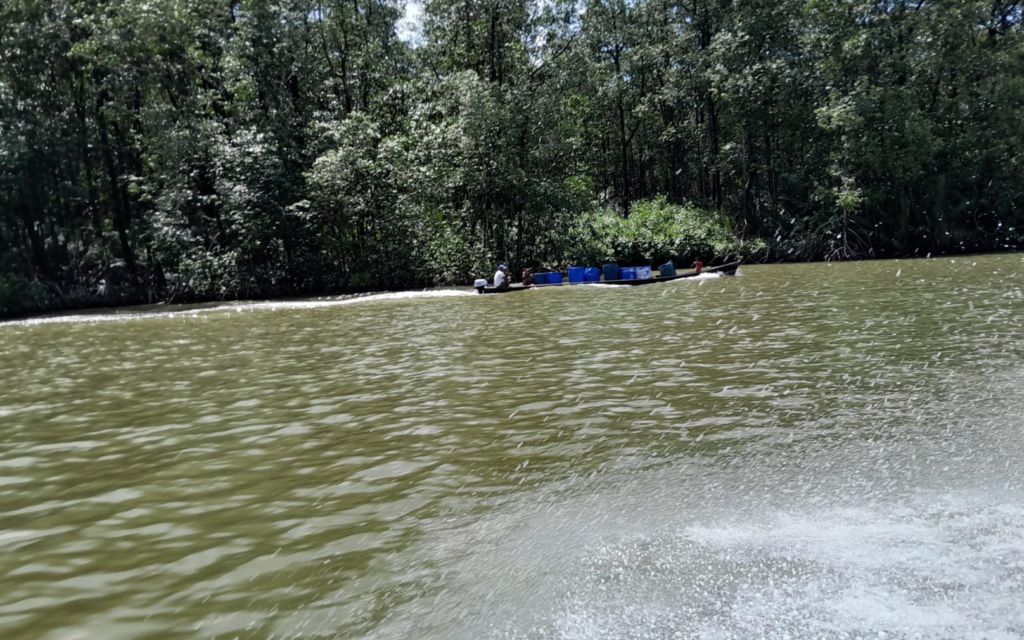
A family heads into the creek in search of water
While, Lakhan is worried about the prolonged dry season and water availability for his farm and his village, he is hopeful that the wet season that comes with the month of May could make a major difference.
Many of the persons in the village cultivate ground provision, plantains and sweet peppers. The water situation has been exacerbated by saltwater intrusion from the Atlantic Ocean. “Duh can’t be used for farming, but some people does wash with it,” Lakhan said.
Among those struggling to access potable water are several Warao families who have taken up residence in the village. Each of the families have black water tanks, which were donated, but those tanks remain empty.
These families set off with barrels, buckets and other containers and would traverse the Barima River in search of water. “They traveled about eight to nine miles to get water at a place called Koriabu,” Waldo Johnson explains. Johnson, a Mabaruma resident who is familiar with the situation explained that fresh water could be accessed in that area in the absence of rain water and wells.
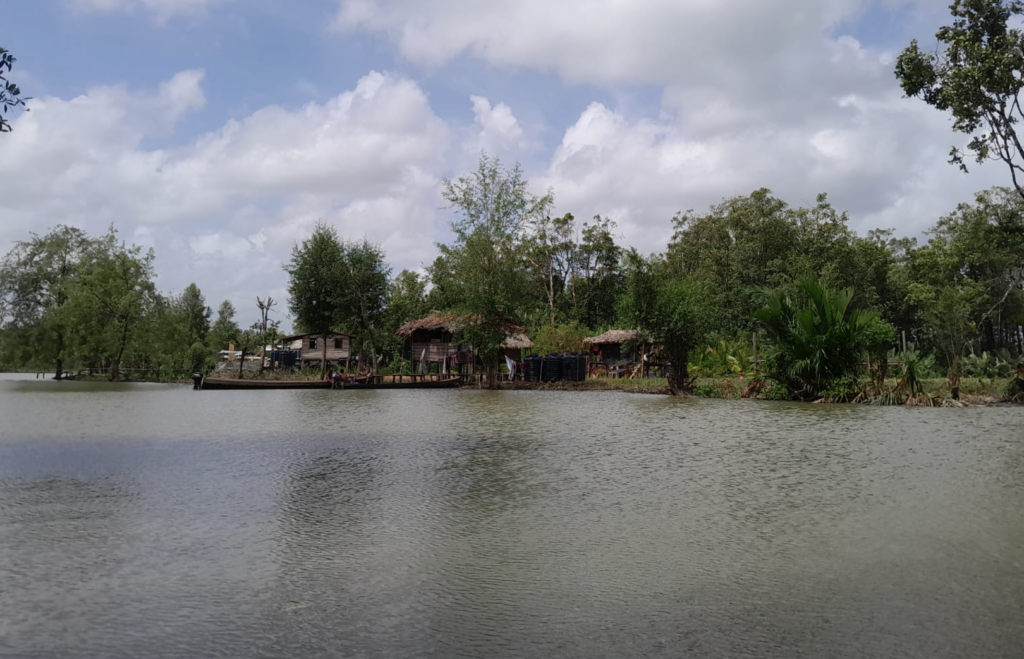
The village of Imbotero
Speaking through a translator, one Warao man explained that he makes several trips during the day for water for different families. He is one of several persons who has a sizable boat and engine. The man said the fresh water is needed for cooking as well as for drinking. Chronicling the journey to the water source, he explained that the distance to find water may change depending on the quality of water he finds.
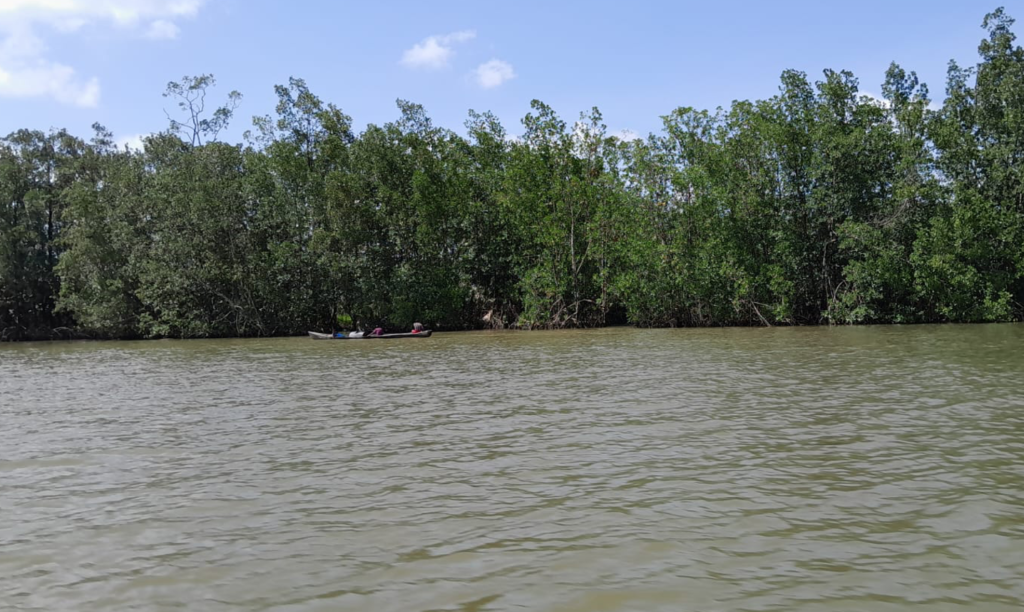
Transporting drinking water home
Back in Mabaruma, At Farmcore, which is an area occupied by migrant Warao families, water is a scarce commodity. There are no waterways close by, and the families say that they have to arrange for drinking water to be delivered from wells. Several water tanks in this settlement were empty.
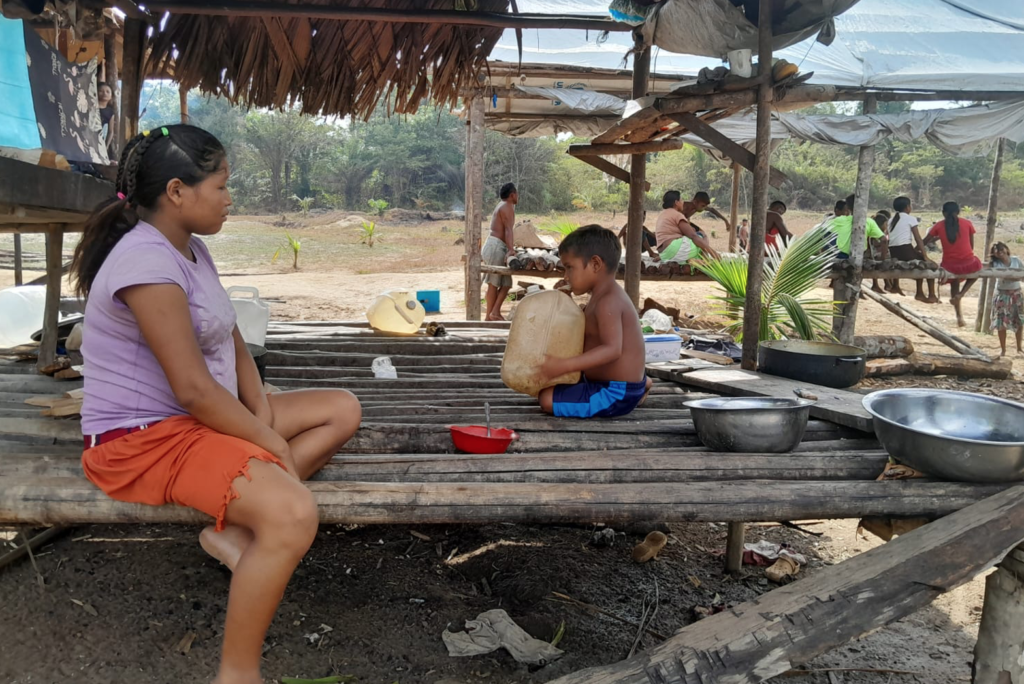
Warao boy drinks water while his mother looks on
“We have not experienced an El Nino like this within a decade or more,” Regional Chairman Bretnol Ashley declared. He pointed out that many communities rely on the “sweetwater” from the creeks for their chores, “but it’s all completely salted now” he said. Families within riverin communities are the most affected, the Regional Chairman said they rely on rainfall and springs or creeks.
In Mabaruma, the Guyana Water Incorporated continues to drill wells in some areas;the latest one was drilled in Mabaruma Settlement, the Regional Chairman explained. “GWI pump stations had a drastic decrease in the quantity of water within their respective pools” Ashely explained, “so there was a reduction in pumping hours.”
Returning to Imbotero, Toshao Lakhan is hopeful that the May/June rains would bring relief to his village, “ah waiting here for the rain,” he said. The prolonged dry season is expected to be rescued by the May/June wet season.







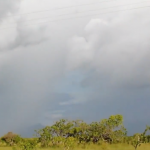



You must be logged in to post a comment Login